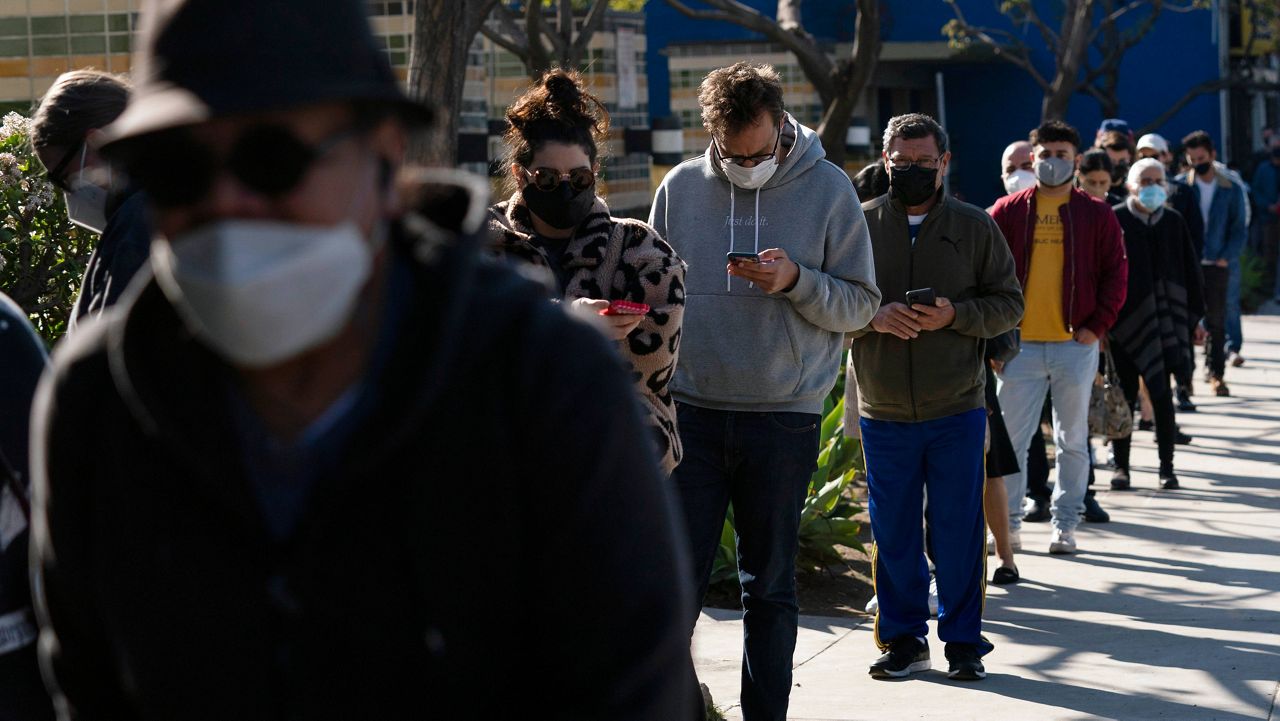A new study has found that the omicron COVID-19 variant causes less severe disease than the delta strain, including a 91% reduction in deaths.
What You Need To Know
- A new study has found that the omicron COVID-19 variant causes less severe disease than the delta strain, including a 91% reduction in deaths
- The researchers analyzed the medical records of 69,279 patients at Kaiser Permanente of Southern California who tested positive for COVID-19 from Nov. 30 to Jan. 1
- The analysis also found there was a 53% reduction in symptomatic hospitalization, a 74% reduction in admission into intensive care units
- No patients with omicron required mechanical ventilation, and those who were hospitalized with the omicron variant had shorter hospital stays — a median of 1.5 days versus five days
The researchers analyzed the medical records of 69,279 patients at Kaiser Permanente of Southern California who tested positive for COVID-19 from Nov. 30 to Jan. 1. Three-quarters were infected with the highly transmissible omicron variant, and the rest by delta.
The analysis found there was a 53% reduction in symptomatic hospitalization, a 74% reduction in admission into intensive care units and a 91% reduction in deaths — one from omicron compared to 14 from delta.
No patients with omicron required mechanical ventilation, compared to 11 cases with delta infections. And those who were hospitalized with the omicron variant had shorter hospital stays — a median of 1.5 days versus five days.
Reductions in disease severity were evident among both vaccinated and unvaccinated patients, the researchers found.
“The data in this study remained consistent with what we are seeing from omicron in other countries, including South Africa and the U.K., and provide some understanding of what we can expect over the coming weeks as cases are predicted to peak in this country,” Dr. Rochelle Walensky, director of the Centers for Disease Control and Prevention, said Wednesday.
A preprint of the study, which has not yet been peer reviewed, was posted Tuesday on the website MedRxiv. The researchers — from University of California Berkeley, Kaiser Permanente and the CDC — excluded patients who appeared at hospitals complaining of other medical issues but tested positive for the coronavirus while there.
While the study’s results might set some minds at ease about omicron, which now accounts for 98% of new cases in the U.S., they come as the country is experiencing record highs in COVID-19 infections and hospitalizations. The seven-day average for new daily cases is 750,996, and Monday saw 1.4 million reported cases, according to CDC data.
Meanwhile, 151,261 people are hospitalized with COVID-19 in the U.S., according to the Department of Health and Human Services.
“The risk of hospitalization remains low, especially among people who are up to date on their COVID vaccines,” Walensky said. “However, the staggering rise in cases — over 1 million new cases each day — has led to a high number of total hospitalizations.”
The seven-day average for COVID-19 deaths is 1,633, up 52% from Dec. 26. But Walensky said she believes those are “lagging deaths from the delta wave.”



